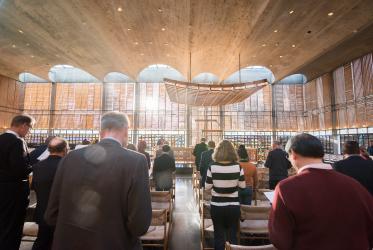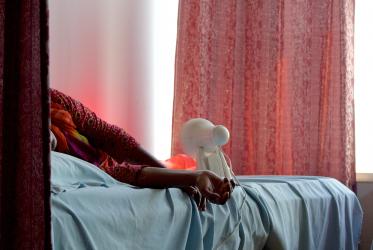Displaying 61 - 80 of 86
WCC stands in solidarity with victims of major flood in Brazil
17 February 2022
WCC posts job openings for leadership staff
27 January 2022
African church leaders train in leadership, diakonia and development
12 November 2021
Churches offer some relief in Kenya’s drought disaster
16 September 2021
WCC podcast deals with death and dying
15 December 2020















